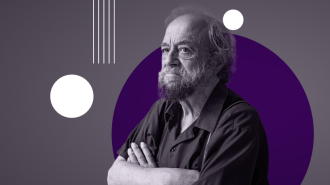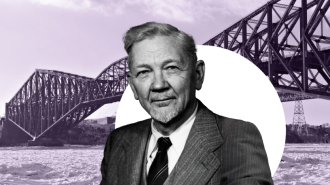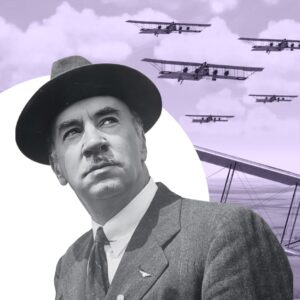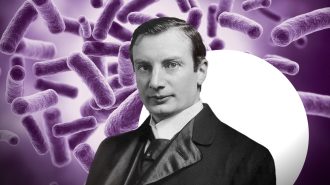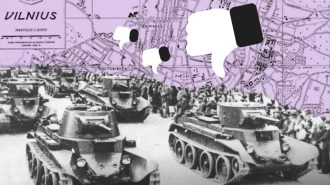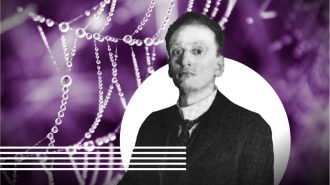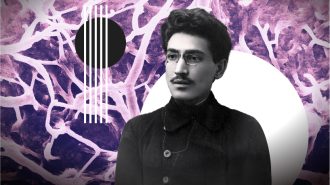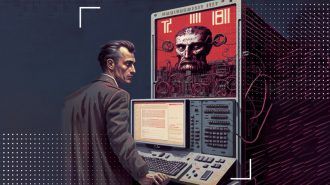At the end of June, acting Rector of the Russian State University for the Humanities named Andrey Loginov, ex-Deputy Minister of Justice of Russia. This happened against the backdrop of a public scandal around the “Higher Political School” named after Ivan Ilyin, headed by Alexander Dugin, created at the university. T-invariant analyzed Loginov’s biography and found that he has no less importance than Ilyin and Dugin, grounds to claim the title of the main ideologist of the “Russian world”.
History
Interview with Breakthrough Prize winner Alexander Zamolodchikov about the quantum field theory and how it feels to be involved in a domain that is completely impossible to imagine and understand. We also discussed emigration and how, in the midst of Perestroika, he realized that things would not be good in Russia.
The eighth essay in the “Creators” series is dedicated to Stepan Timoshenko, one of the founders of modern applied mechanics. In the “Creators” project T-invariant in collaboration with RASA (Russian-American Science Association) continues to publish a series of biographical essays about people from the Russian Empire who made significant contributions to world science and technology.
The seventh essay in the “Creators” series is dedicated to Igor Sikorsky, one of the founders of modern aviation. In the “Creators” project, T-invariant together with RASA (Russian-American Science Association) continues to publish a series of biographical essays about people from the Russian Empire who made significant contributions to world science and technology.
Important Stories published a text by T-invariant editor-in-chief Olga Orlova about how the Israelis were left alone with the war. A third of students are at the front, small businesses are on the verge of collapse, volunteers are saving farmers.
The fifth essay in the “Creators” series is dedicated to Vladimir (Waldemar) Haffkine, the creator of the first effective vaccines against cholera and plague. At the end of the 19th century, Haffkine carried out the first mass vaccination in India. His laboratories have developed and produced tens of millions of doses of cholera and plague vaccines. In the “Creators” project, T-inavariant, together with RASA (Russian-American Science Association), continues to publish a series of biographical essays about people from the Russian Empire who made a significant contribution to world science and technology,
The number of Israelis abducted during the terrorist attack on October 7, whose identities have been identified, has reached 210 people. However, it is not yet known how many people remain alive and how many are killed. In southern Israel, where fighting is still ongoing, small volunteer groups were searching for missing people. Zoologist Alexandra Panyutina worked in one of them. At the request of T-invariant, Alexandra tried to reconstruct the picture of the tragedy that occurred.
How do the events of October, 7 differ from the previous Israeli-Palestinian conflicts? Why was Israel unprepared for the invasion? What could happen to the hostages? A new configuration of the relations between Palestine and Israel emerges, says Dmitry Mariasis, candidate of economic sciences, specialist on the Middle East, former head of the department of the Israel study and Jewish communities at the Institute of Oriental Studies of the Russian Academy of Sciences.
Is it possible to say that the USSR annexed Lithuania? Why was the contract with the emigrant professor officially terminated? What do other teachers and students of Vilnius University, as well as Andrey Desnitsky himself, think about this? T-invariant tried to understand how such issues should be resolved from the point of view of the norms of the academic community.
Within the project “Creators” T-invariant together with RASA (Russian-American Science Association) continues to publish a series of biographical essays about people from Russian Empire, who made a significant contribution to world science and technology. Alexander Petrunkevitch was born in the Chernigov Governorate, but most of his life he worked at Yale University. He became especially famous for his research on arachnids.
What can sociology tell us about war? For residents of Eastern Europe, war has ceased to be a word from textbooks and news. It invaded their homes and their destiny, it became part of their everyday life. Ariel University researcher Victor Vakhshtain gave an open lecture at the Free University about how war mixes with everyday life.T-invariant suggests reading a short version of the speech scientist.
T-invariant, in collaboration with RASA, is launching the "Creators" project. The project will publish a series of essays on immigrants from the Russian Empire who have made significant contributions to global science and technology. The first essay is dedicated to Selman Waksman, Nobel Prize winner and discoverer of streptomycin.
Despite its reputation as a scientific and technological superpower, the Soviet Union missed every phase of the 20th century’s information technology revolution. The first episode was a ten-year delay in the conceptual cybernetic revolution. It did not prevent the creation of the first Soviet computers, but led to a lag in subsequent stages.



